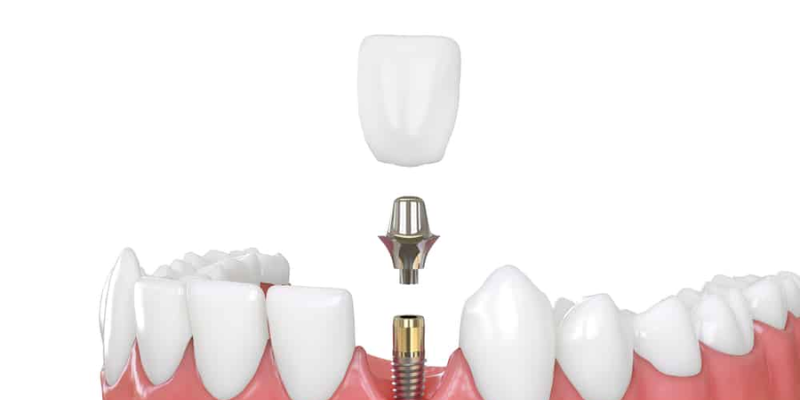Are Dental Implants Painful
Humans are in a constant need for dental related issues. As per needs of individual persons, questions such as are dental implants painful arise. Medical experts suggest numerous therapies, which differ individually. Thus, treatments vary from person to person. However, post-treatment pains and related complications will be explained herein. Earlier, the topic of dental implants was covered, which shall be clarified further in this article.
What are Dental Implants?
Prior to the query of are dental implants painful is solved, we need to understand well. This will be explained in details. People lose teeth with the passage of time. This loss sometimes results from dental related issues, while age factor plays a role in other cases. On other occasions, physical ailments also lead to loss of teeth. Whatever be the reason of dental related issues, or teeth fall, the solution lies in dental implants. This treatments materializes in the form of painless implants without harming the other natural teeth. The implant can sometimes be for an entire set of teeth, while at other times can be for individual tooth.
Process of Dental Implant Surgery
For comprehending how painful the implant procedure is, it is handy to understand what goes on when an opts for an implant. Mostly, after an individual undergoes a natural tooth removal, the zone meant for the implant is readied with a bone graft before the actual process. Such grafts lay the foundation for new bone production, that will solidify the jawbone and assists in ensuring the implant blends with the bone well. During the course of a dental implant surgery, a professional dentist drills a hole in the jawbone which is fortified with a metal post. This post functions as a duplicate root tooth.
The post requires time for osseointegration, whereby the bone grows from the patient’s jaw via it. Although the entire procedure can last up to months, it is necessary for stable and healthy implant. The abutment is a constituent whereby the dental crown awaits attachment. The post does not usually find place until the end of osseointegration.
Performing Process
Occasionally, the dentist performs a smaller operation to put in the abutment which is a minor surgery solely concerned with the gums. It may result in some swelling and bleeding. However, the abutment placement induced pain and discomfort is less severe. It is less compared to the pain one experiences as a result of metal post placement.
Risk Management
Dental implant surgery is accompanied by trauma to the gums as well as the jaw. The operation in itself does not involve any discomfort as the dentist numbs the mouth. When that numbness wears off, individuals usually experience some degree of pain by most accounts. Numerous dental experts suggest pain relief remedies to pacify the discomfort experienced at the implant location. In certain instances, post-surgery discomfort is so mild that simple pharmacy medication proves enough to tame it.
Results on Dental Implants’ Painful or not Explained
Conventionally, a single implant causes lesser discomfort in contrast with a surgery accompanied by multiple implants. Individuals generally experience pain for 10 days after the operation, with some instances of the pain resolving before 10 days. In cases of excessive discomfort continuing beyond the 10-day limit, it becomes obligatory for patients to speak to a dental professional without delay. Prolonged discomfort may hint at an infection at the implant site. In such a condition, the dentist will be required to act promptly and save the implant.
Choosing Between Root Canal and Implant
Starting from the question of are dental implants painful, rather having the task of deciding what to do. Though both root canals and implants have their pros and cons, a dentist usually analyses an individual’s dental requirements. Ultimately, the individual decides which one suits him/her thge best. The choice will usually depend on dental issues, budgets, and preferences.
If one’s tooth has undergone a considerable amount of decay and if one is fine with a higher price and much involved process, he/she may realize an implant being advantageous in the long term. However, if one prefers retention of natural teeth and comprehend the risk factors, the root canal option may be more affordable besides being less invasive. Irrespective of the choices made, consultation with an expert is necessary to understand pros and cons better. However, one can unanimously state that dental issues and teeth fall have a formidable solution in dental implants, and that a little and mild pain is worth the broad long term benefits.
Post Surgery Caution
After the surgery, the one who has it performed upon him/her will undergo and experience some unease when it comes to regular food consumption as gums heal. This hints at a suggestion of the patient advised with softer foods for a particular period of time. Individuals also advised to abstain from caffeine, tobacco and related products in order to prevent implant breakdowns and other difficulties.
One will also need to fix frequent appointments with a dentist so they can diagnose and oversee the healing process properly and ensure the prevention of any procedural complications.
Healing Progress Beyond the One Month Period
Having the question of dental implants painful or not is a big riddle to solve out. After a period of one month, every anxiety revolving around any dental implant operation will fade away and turn into a distant memory. The individual will then be well en route to leading a normal healthy lifestyle with smiles from the past.
One will still, need to be exercise a little caution bearing in mind the fact that the healing process has not completely achieved. Starting from the one-month period and the 4-month time-frame, the bone tissue around the titanium implant will strive to fuse in a process called osseointegration that has already discussed earlier. This is important and is it is this that helps create a sturdy standalone platform on which a dental crown or bridge supposed to be have placement. One must feel no pain or inconvenience at this period. Needing not be over-cautious with the exception of regular. And, repeated dental check-ups to check and ascertain the status of the implant site.
How Important is Hair Transplantation After Care for Long-Term Results?
The hair transplantation is a standard and increasingly popular procedure that many men and women opt for to restore their natural hair. The procedure involves transferring healthy hair follicles from the back or sides of the scalp to balding areas. Although it is a relatively safe and straightforward procedure, take proper care of your hair after the surgery to ensure optimal results. The success of a hair transplant depends mainly on how well you take care of your scalp and newly transplanted hair follicles during the healing process. With proper hair transplantation after care, your hair may become smooth, firm, and even fall out. Here are some tips to help you maximize your hair transplant results and maintain your new look.

One of the most important steps in ensuring long-term success with a hair transplant is following your hair transplant surgeon ’s instructions for hair transplantation after care. Your doctor will likely provide you with detailed instructions for taking care of your scalp, including when and how often to wash it, as well as what products you should use. In addition, they may provide you with medications to reduce inflammation and help facilitate healing.



